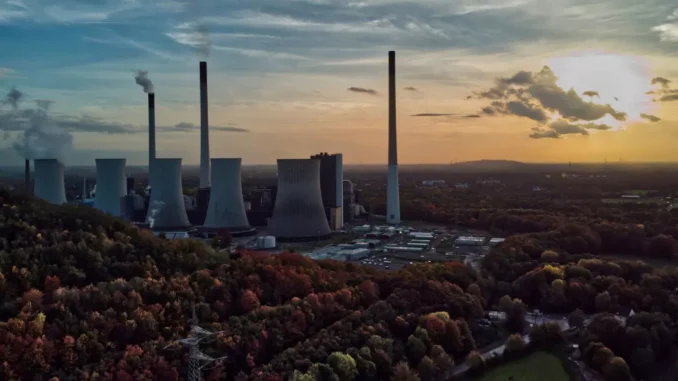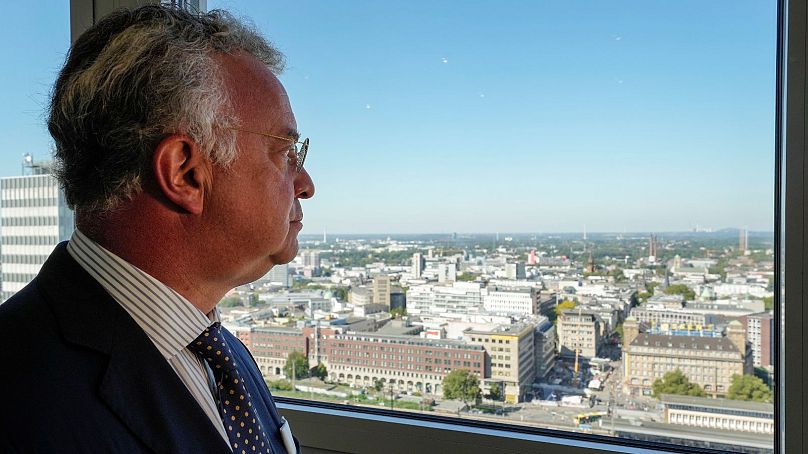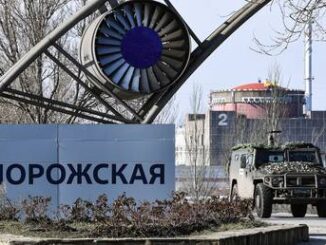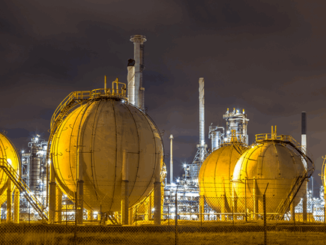
The loss of cheap gas from Russia played a part, but decisions in the boom years are now being questioned.
For most of this century, Germany racked up one economic success after another, dominating global markets for high-end products like luxury cars and industrial machinery, selling so much to the rest of the world that half the economy ran on exports.
Jobs were plentiful and the government’s financial coffers grew as other European countries drowned in debt, and books were written about what other countries could learn from Germany.
Now, Germany is the world’s worst-performing major developed economy, with both the International Monetary Fund and European Union expecting it to shrink this year.
It follows Russia’s invasion of Ukraine and the loss of Moscow’s cheap natural gas — an unprecedented shock to Germany’s energy-intensive industries, long the manufacturing powerhouse of Europe.
The sudden underperformance by Europe’s largest economy has set off a wave of criticism, handwringing and debate about the way forward.
Germany risks “de-industrialisation” as high energy costs and government inaction on other chronic problems threaten to send new factories and high-paying jobs elsewhere, said Christian Kullmann, CEO of major German chemical company Evonik Industries AG.
From his 21st-floor office in the west German town of Essen, Kullmann points out the symbols of earlier success across the historic Ruhr Valley industrial region: smokestacks from metal plants, giant heaps of waste from now-shuttered coal mines, a massive BP oil refinery and Evonik’s sprawling chemical production facility.
These days, the former mining region is a symbol of the energy transition, dotted with wind turbines and green space.
The loss of cheap Russian natural gas needed to power factories “painfully damaged the business model of the German economy,” Kullmann said.
After Russia cut off most of its gas to the European Union, the German government asked Evonik to keep its 1960s coal-fired power plant running a few months longer.
The company is shifting away from the plant to two gas-fired generators that can later run on hydrogen amid plans to become carbon neutral by 2030.
One debated solution: a government-funded cap on industrial electricity prices to get the economy through the renewable energy transition.
The proposal from Vice Chancellor Robert Habeck of the Greens has faced resistance from Chancellor Olaf Scholz, a Social Democrat, and pro-business coalition partner the Free Democrats. Environmentalists say it would prolong reliance on fossil fuels.
Kullmann is for it: “It was mistaken political decisions that primarily developed and influenced these high energy costs. And it can’t now be that German industry, German workers should be stuck with the bill.”
The price of gas is roughly double what it was in 2021, hurting companies that need it to keep glass or metal red-hot and molten 24 hours a day to make glass, paper and metal coatings used in buildings and cars.
A second blow came as key trade partner China experiences a slowdown after several decades of strong economic growth.
These outside shocks have exposed cracks in Germany’s foundation ignored during years of success, including lagging use of digital technology in government and business and a lengthy process to get badly needed renewable energy projects approved.
Other dawning realisations: The money the government had on hand came in part because of delays in investing in roads, the rail network and rural high-speed internet. A 2011 decision to shut down Germany’s remaining nuclear power plants has been questioned amid worries about electricity prices and shortages. Companies face a severe shortage of skilled labour, with job openings hitting a record of just under two million.
And relying on Russia to reliably supply gas through the Nord Stream pipelines under the Baltic Sea — since shut off and damaged amid the war — was conceded by the government to have been a mistake.
Now, clean energy projects are slowed by extensive bureaucracy and not-in-my-backyard resistance. Spacing limits from homes keep annual construction of wind turbines in single digits in the southern Bavarian region.
A €10 billion-euro electrical line bringing wind power from the north to industry in the south has faced delays from political resistance to unsightly above-ground towers. Burying the line means completion in 2028 instead of 2022.
In the meantime, energy-intensive companies are looking to cope with the price shock.
Drewsen Spezialpapiere, which makes passport and stamp paper as well as paper straws, bought three wind turbines near its mill in northern Germany to cover about a quarter of its external electricity demand as it moves away from natural gas.
Specialty glass company Schott AG experimented with substituting emissions-free hydrogen for gas at the plant where it produces glass in tanks as hot as 1,700 degrees Celsius.
It worked — but only on a small scale, with hydrogen supplied by truck. Mass quantities of hydrogen produced with renewable electricity and delivered by pipeline would be needed and don’t exist yet.
Scholz has called for the energy transition to take on the urgency used to set up four floating natural gas terminals in months to replace lost Russian gas. The liquefied natural gas that comes to the terminals by ship from the US, Qatar and elsewhere is more expensive than Russian pipeline supplies, but the effort showed what Germany can do.
However, squabbling among the coalition government over the energy price cap and a law barring new gas furnaces has exasperated business leaders.
Germany grew complacent during a “golden decade” of economic growth in 2010-2020 says Holger Schmieding, chief economist at Berenberg bank. Schmieding, who once dubbed Germany “the sick man of Europe” in an influential 1998 analysis, thinks that label would be overdone today, considering its low unemployment and strong government finances. That gives Germany room to act — but lowers the pressure to make changes.
The most important immediate step, Schmieding said, would be to end uncertainty over energy prices. Whatever policies are chosen, “it would already be a great help if the government could agree on them fast so that companies know what they are up to and can plan accordingly instead of delaying investment decisions,” he said.




